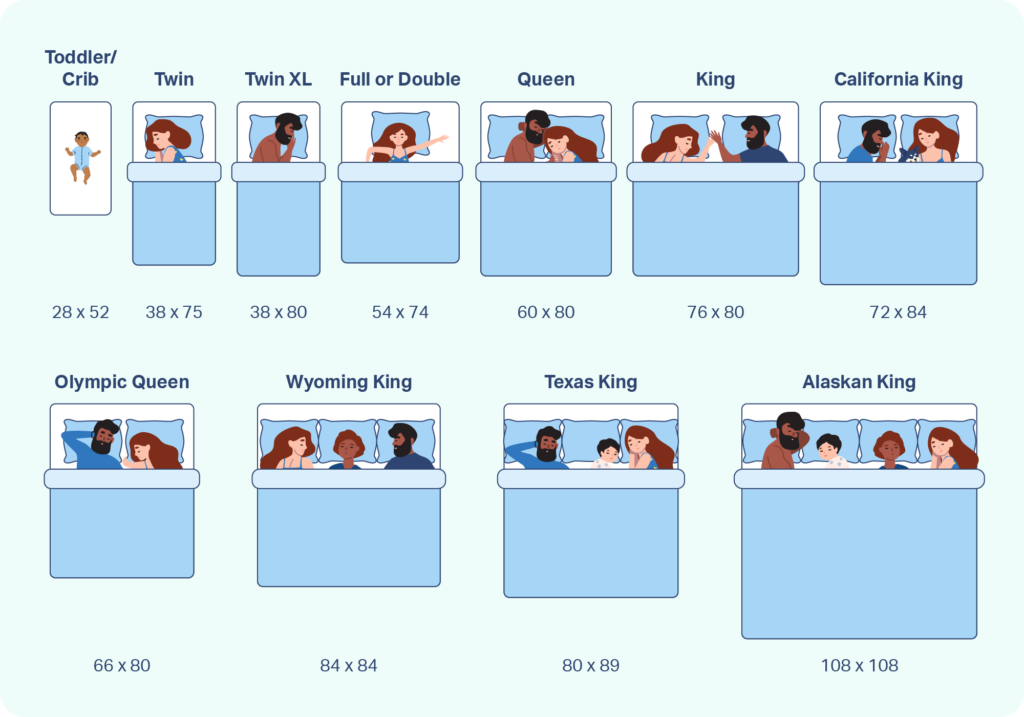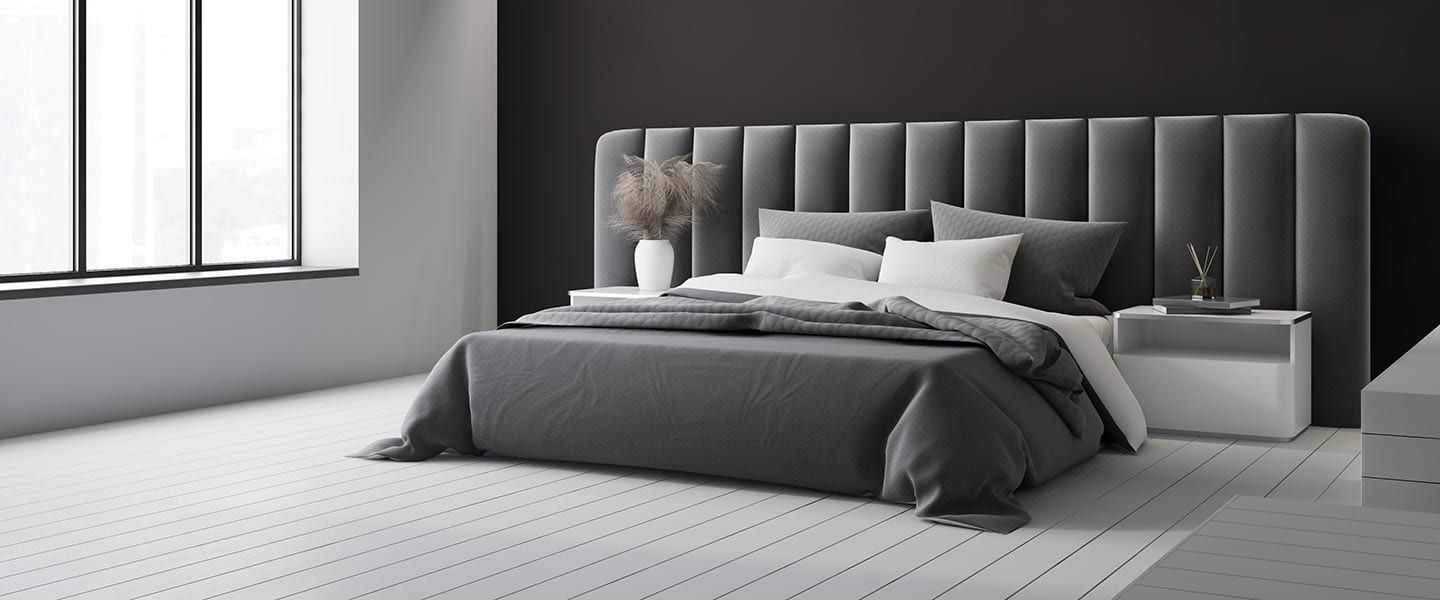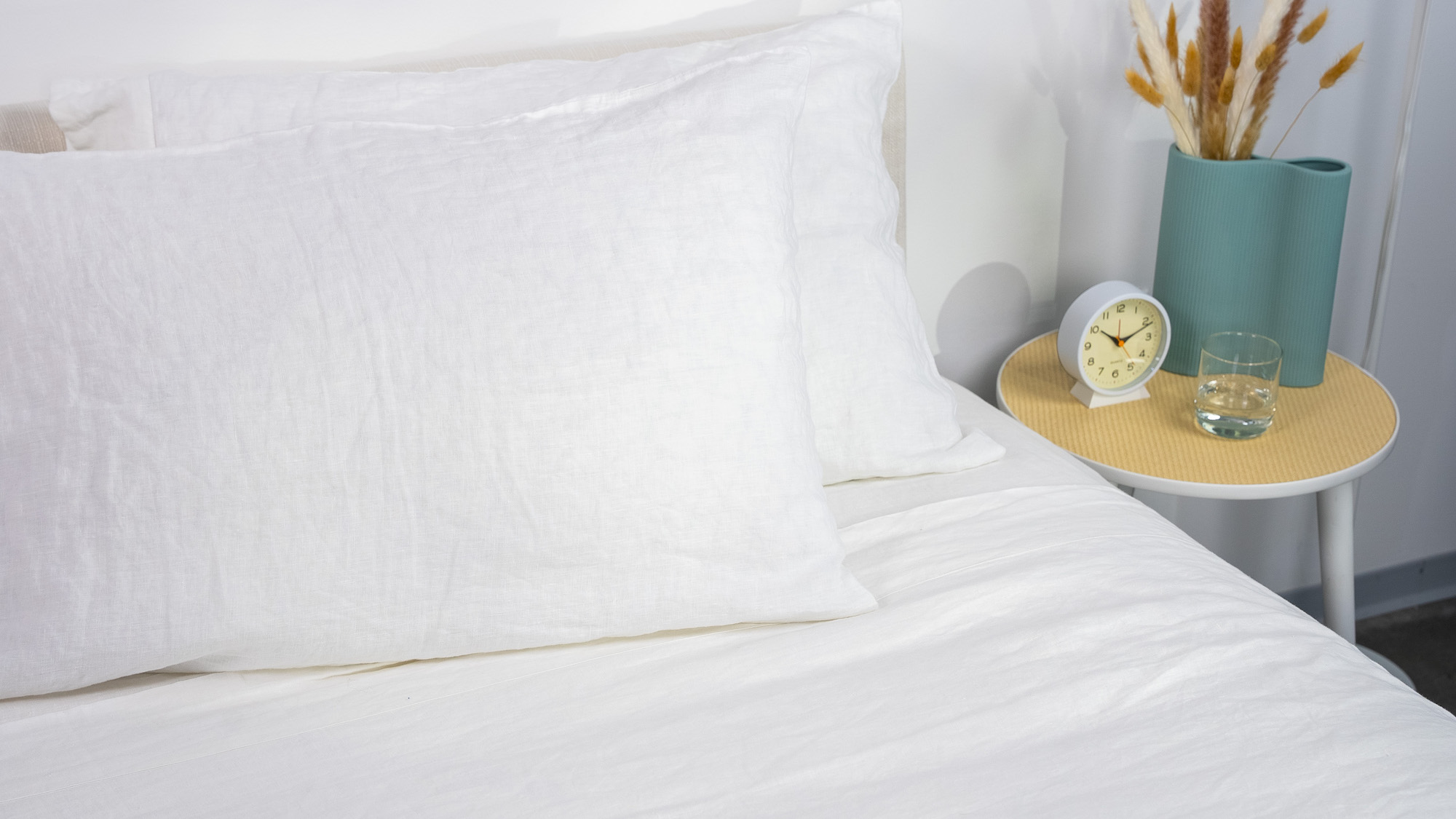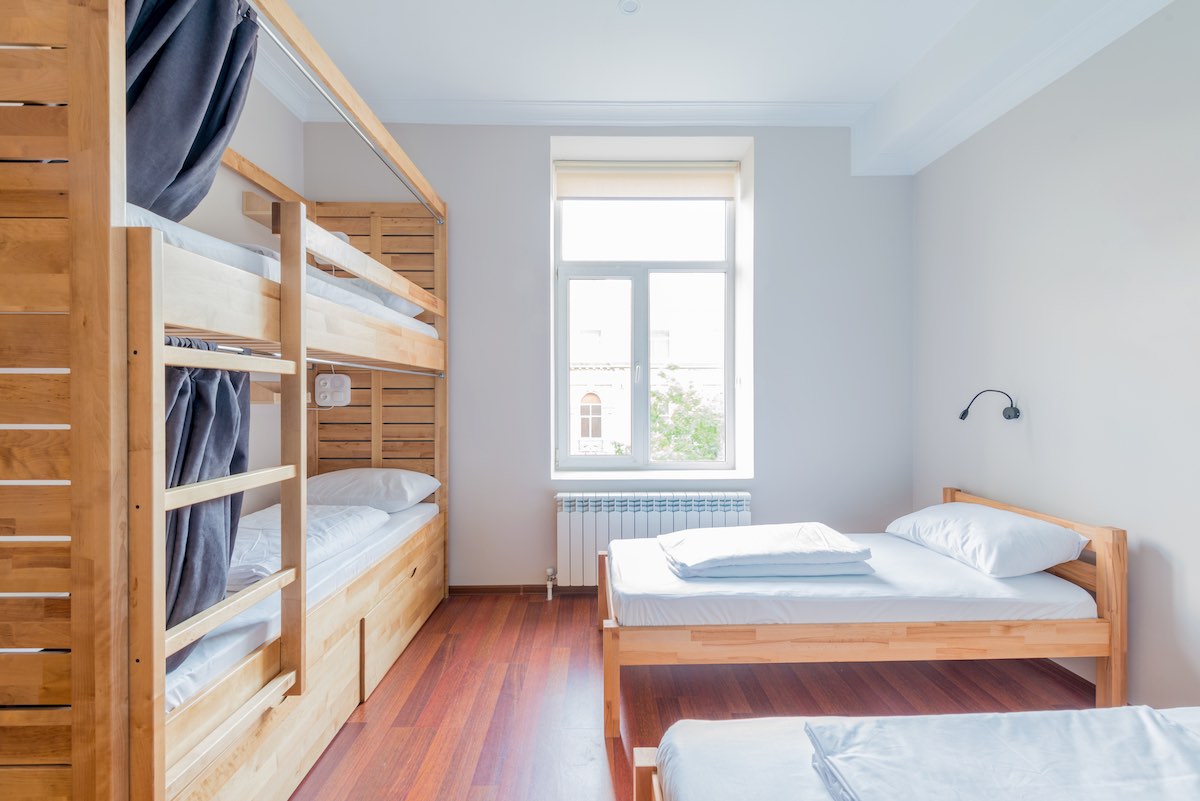When you buy through our links, we may earn a commission. Products or services may be offered by an affiliated entity. Learn more.
Mattress Sizes 101: Finding Your Perfect Fit
Comparing mattress sizes starts with looking at their dimensions in regards to length and width. Keep in mind that height/thickness varies depending on the manufacturer and model, so there is no universal thickness for each mattress size. Width and length measurements are standardized for each size and are listed in the table below.
| Mattress Size | Dimensions (Width x Length) |
|---|---|
| California King | 72″ x 84″ |
| King | 76″ x 80″ |
| Queen | 60″ x 80″ |
| Full | 54″ x 75″ |
| Twin XL | 38″ x 80″ |
| Twin | 38″ x 75″ |
There are six different mattress sizes available from most manufacturers (in addition to crib/child size beds). For some, the choice can seem overwhelming. However, it’s easy to break the mattress sizes down into two categories: Beds suited for multiple people (couples, parents with children sharing the bed, etc.), and beds best fit for single sleepers. Here’s a more detailed breakdown of each mattress size:

Finding the Right Mattress
Whether you’re looking for a twin, California king, or something in between, size isn’t the only consideration when choosing a new mattress. Quality of materials and design should also factor into your decision. Everyone has unique needs as a sleeper, but some mattresses offer more overall comfort, support, and lasting power than others. Three of our testing team’s favorite mattresses are listed below.
Let us help you find the perfect bed
Answer a few questions to find the right mattress for your unique needs
Mattresses for Couples & Families
The sizes queen, king, and California king are all large enough to comfortably sleep multiple people. The big consideration with these three sizes is how much extra space you want, as well as how well the larger sizes will fit into your bedroom.
| California King | King | Queen | |
|---|---|---|---|
| Dimensions | 72” wide, 84” long | 76” wide, 80” long | 60” wide, 80” long |
| Surface Area | 6,048 square inches | 6,080 square inches | 4,800 square inches |
| Best For | Taller couples; couples sharing a bed with a pet | Couples who prefer maximum space; couples sharing a bed with a child | Couples without children or pets sharing the bed |
| Benefits |
|
|
|
| Drawbacks |
|
|
|
Beds for Single Sleepers
The sizes full, twin XL, and twin are better suited for single sleepers. A full mattress could potentially accommodate a couple in a pinch, but twin XL and twin are definitely only for single people. There are a few other considerations to keep in mind with these sizes:
| Full | Twin XL | Twin | |
|---|---|---|---|
| Dimensions | 54” wide, 75” long | 38” wide, 80” long | 38” wide, 75” long |
| Surface Area | 4,050 square inches | 3,040 square inches | 2,850 square inches |
| Best For | Single adults under 6′ tall | Single adults over 6′ tall; teens | Single adults under 6′ tall; children & teens |
| Benefits |
|
|
|
| Drawbacks |
|
|
|
How to Choose a Mattress Size
The tables in the mattress size guide above give you the basic differences between the various mattress sizes. Before choosing, however, there are a variety of factors that you should consider:
Sleeping Partners – Who do you share a bed with? This is the single largest consideration to keep in mind. Couples will likely want at least a queen, while couples sharing a bed with children will likely want a king mattress. Even pets are a consideration; if you let your animals sleep at the foot of your bed, having a bed with ample legroom will greatly improve your comfort.
Your Height & Sleep Position – How tall are you and/or your partner? Typically those under 6 feet tall will have enough legroom on any mattress, while those over 6 feet tall will want to consider a bed with at least 80 inches of length (twin XL, queen, king, and California king). Your sleep position also factors into this consideration; back and stomach sleepers rest fully extended, and therefore need to consider legroom more than side sleepers.
Bedroom Dimensions – What room will you put your new mattress in, and how spacious is that room? To avoid a cramped feeling, we recommend leaving about 24 inches of space around each side of your bed. It’s best to measure out the approximate measurements of your new bed before purchasing it, to get an idea of how well it will fit in your bedroom.
Versatility – A new mattress can be a major purchase, so you’ll want to ensure that you get a versatile bed that will last a long time. This means thinking ahead about your mattress needs in the future. Buying a bed for a small child? Consider going one size up to future-proof the bed. Buying your first-ever bed as a single person? Consider going up a size to accommodate future partners and/or pets.
Cost & Value – A new, quality mattress can cost anywhere from $400 to over $3,000 – and the mattress size has a significant impact on the cost. While we don’t recommend cutting corners to save money on a new mattress, shoppers should keep in mind that price is not the only indicator of quality and it is possible to find a cheap mattress that will meet your needs. Beyond the initial expense, it’s also wise to consider the cost of accessories. For less common sizes (California king and twin XL, mostly), accessories such as sheets, blankets, and bed frames will be more expensive than accessories for more popular sizes.

Still have questions? Ask our community!
Join our Sleep Care Community — a trusted hub of sleep health professionals, product specialists, and people just like you. Whether you need expert sleep advice for your insomnia or you’re searching for the perfect mattress, we’ve got you covered. Get personalized guidance from the experts who know sleep best.

















